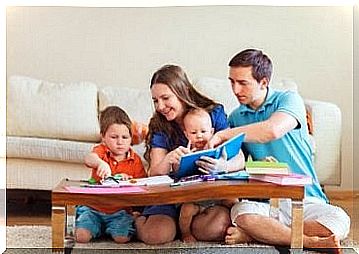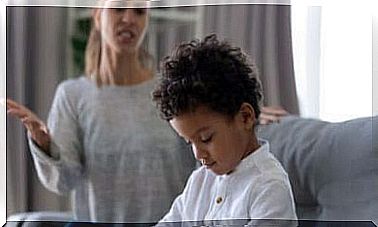Agreeing On The Education Of Children – Being Parents

When a couple decides to start a family, two worlds come together to create a new one. The baggage of the two, their ways of seeing life come face to face with the adventure of raising a little person. It is therefore not easy to agree on the education of children.
When we become parents it becomes evident how we were brought up. Whether it is to repeat it or to avoid it, the education we have been able to receive plays a very important role. Our fears, desires and beliefs are brought to light and sometimes conflict with those of our partner.
A common front
However, for children it is essential to see their parents as a united, solid and firm front. This gives them clear boundaries and security in how they adjust to life. At the slightest presence of constant discrepancies between parents, or if parents send conflicting messages, children will feel a lack of references.
In addition to the unmistakable sadness and discomfort that can be caused in the child by disagreements between his parents and the feeling of insecurity, the lack of agreement can lead the child to try to take advantage of it.

Even when parents are separated, it is very important to make agreements regarding the education of minors. They must then be implanted in the same way in the home of both parents.
Lack of agreement on education
There are two main situations which reflect the difficulty of agreeing on the education of children.
Both parents have completely opposite views of child rearing
This case is the clearest. Due to their own life experiences, each parent has very different ideas of what is appropriate for their children’s education. They both feel right and true. They are adamant when it comes to talking, listening or negotiating with their partner.
Everyone tries to impose what they think is practical, creating in the children a feeling of lack of control and confusion. Therefore, arguments and brawls between the couple are constant and can fall into an ego struggle.
There is agreement in theory but not in practice
The other situation that arises most often is where both parents, after discussing parenting, agree on what to do. They seem to share values and points of view, and they easily agree on the rules of the household.
However, one parent is much more permissive than the other when it comes to putting what has been agreed into practice. The way of educating, which in theory was totally shared, no longer seems to have such importance. Ongoing exceptions are made or what has been agreed with the partner is not taken seriously.
Thus, one of the members of the couple reverses all the education and delineation work that the other is doing. The latter then becomes in the eyes of his children an inflexible ogre.

How to agree on education
- You are a new family. It is good to talk about the type of education each of you have received and to take that as a point of reference in some respects. However, we must not lose sight of the fact that you are a whole new family and you do not have to repeat the actions of your parents. Their way of educating is not the only one, and perhaps not the best either.
- Stand together. Talk privately about the rules you want to put in your home, avoid arguing or disagreeing in front of the children. If one parent has a conflict with a child, it is best for the other to sit on the sidelines and wait until they are alone to discuss it with their partner.
- You are a team. The other is not your enemy, he is your ally. Seek solutions together and avoid blame and power struggles.
- Be consistent in applying the rules. Don’t leave the whole task of education up to your partner or belittle their work. If you agree with the approaches, put them into practice. Educating a human being takes effort, but it’s beautiful.









